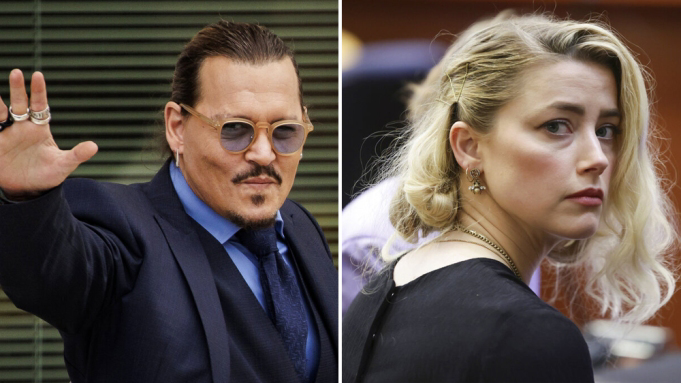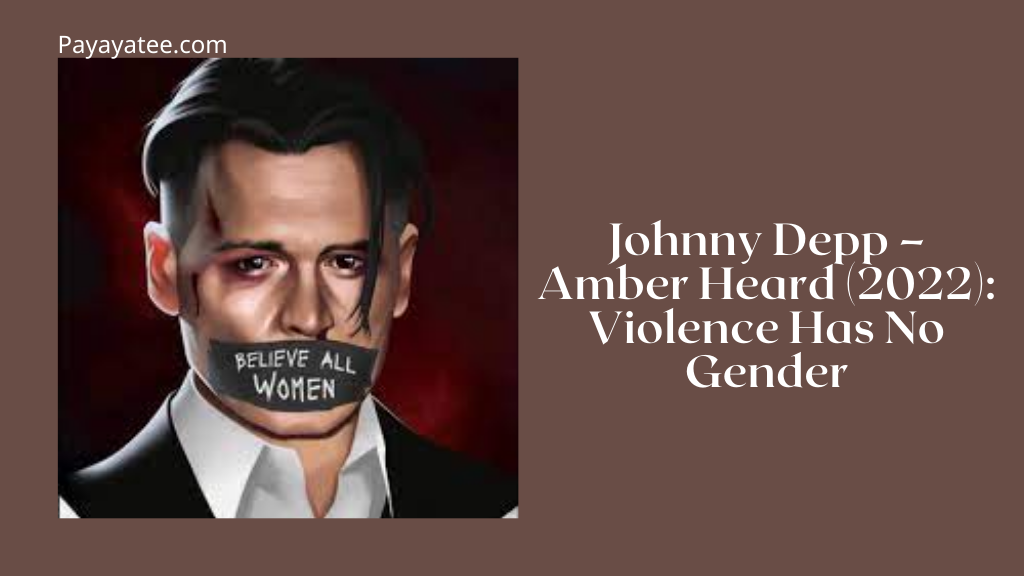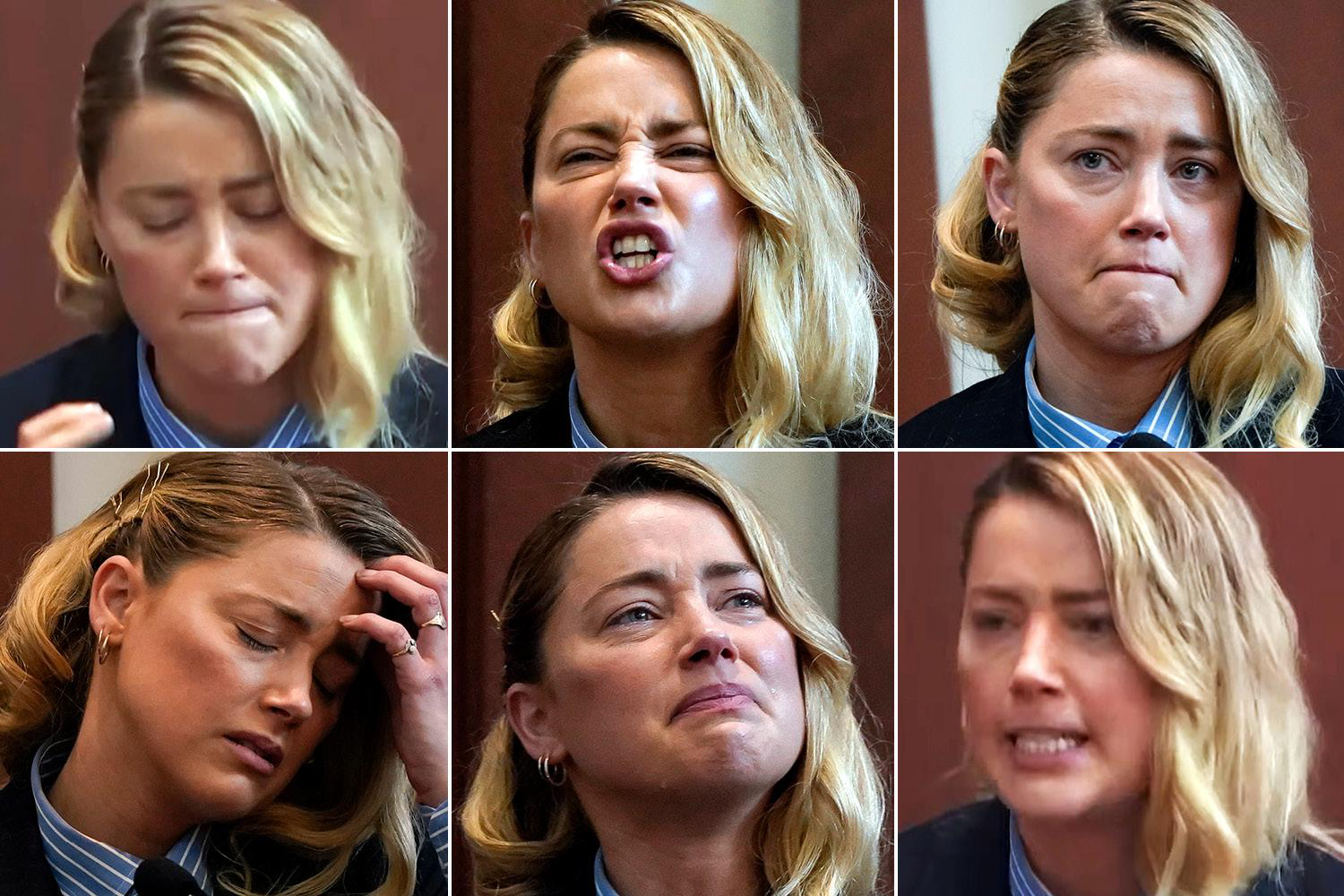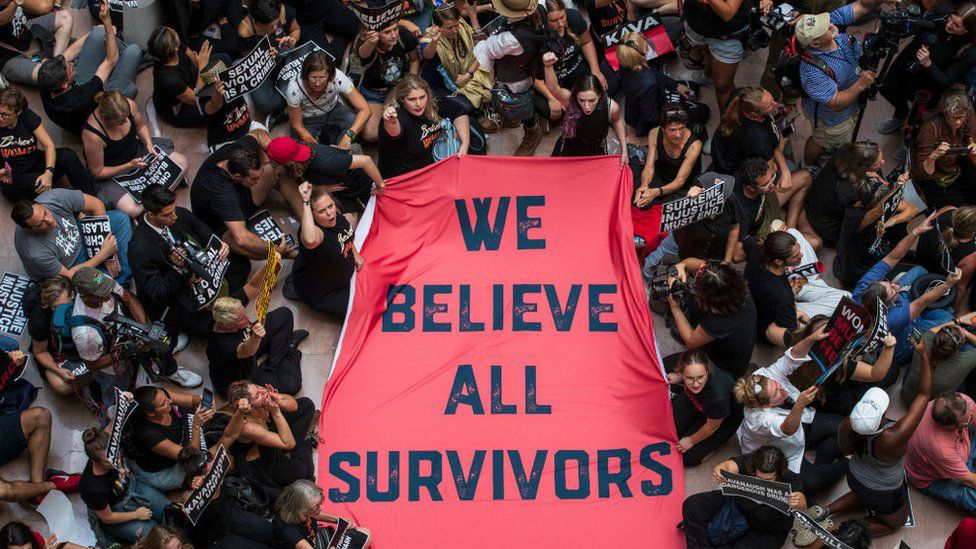
Source: www.variety.com
Since the onset of the #MeToo movement, the world relished seeing the likes of Harvey Weinstein and Kevin Spacey get dragged online, lose sponsorship deals, and get axed of multi-million dollar productions all under the banner of online cancellation. Although to this date it's debatable if cancellation works when the "canceled" party tries as much as possible to stay relevant, it is sometimes the only way a victim can fight back against a powerful perpetrator. The world held its breath to watch when Johnny Depp- the veteran Hollywood actor- filed a defamation case against his ex-wife, who was thought then to be his victim, Amber Heard.
So what made the Johnny Depp vs. Amber Heard trial so fascinating? Shouldn't it be just a classic example of a fall from grace? Well, the final court decree did cause such a fall but to the defendant, not the plaintiff, which created so much conjecture about the status of the #MeToo movement and the "believe women without evidence" slogan. Not to forget that many thought this case will contribute to abusers yielding more power over their victims who now will be afraid to come forward.

The public reacted to the verdict by blaming the movement for silencing an alleged victim. Source: Payayatee.com
In this article, I don't aim to take sides with either of the two parties but to examine the larger cultural discussion on representatives of movements, the importance of evidence-based legal systems, and what we can do to create a welcoming environment for survivors to tell their story, and the current momentum of the movement in Sudan.
Before getting into the legal nitty-gritty, a recap of events is essential to set the tone:
● Amber Heard filed for divorce in 2016
● Received a divorce settlement estimated to be 7 million dollars
● Johnny Depp sued the British Sun newspaper for libel, which is defamation in printed media, after being called " wife-beater " in 2018 and lost.
● Depp sued Heard in 2022 for defamation in Virginia, US, and won 15 million dollars in compensatory damages while she won 2 million dollars in compensatory damages after the jury found that Depp's lawyer defamed Heard.
The UK vs. The US: Different Legal Systems Equal Different Outcomes?
Johnny Depp lost in front of a judge in the UK but won in front of the jury in the US, his lawyers used the same technique of painting a good vs. evil narrative that backfired in the court depending on the legal lore but succeeded when appealing to the emotions of a jury with no legal background. This illustrates how the place of a trial can impact its results. Johnny filed the suit against The Sun in the UK where the law there favors plaintiffs in libel cases, while in the US, the law favors the defendants. The US legal system also favors imposing a prerequisite of proving malicious intent- which The Sun proved that they only reached after Heard received her settlement.
Another factor is that Depp sued a newspaper that only copied what was being said about him in the UK case, but went into trial against the individual who allegedly caused him damage in the US and not the medium that reported the news- even if the piece about him was an opinion piece. Hereby, Depp started a conversation about freedom of expression and to what extent should it be curbed if it leads to defamation.
According to some Sudanese legal scholars, Heard or The Sun didn't even have to mention Depp by name, merely implying could still be considered defamation as Heard wrote in her Washington Post Op-ed that she suffered abuse from her former husband which is commonly known to be Johnny Depp. Libel, according to article 159 (1) of the Sudanese penal code, dictates that merely reporting judicial proceedings doesn't count as libel, something the newspaper argued by stating that it was merely covering the accusation Heard issued against Depp, which led to the court case.
The Poster Child for a Movement, Why we Shouldn't Personalize Causes
After the trial, Heard claimed she was the face of domestic violence survivors and freedom of speech activists and that this decree will push back the wheel of women's rights centuries back, leading to a backlash against the #MeToo movement. But is it fair to anoint anyone as the face of a movement?
This is a double-edged sword; setting examples and representing victims either fictional or real can benefit those who are going through abuse to step forward and know they will be believed. In the case of Depp, many male survivors came forward because they saw how he overcame his fear of stigma against battered men and society's idea about how a man should be.
Occasionally, when the accuser turns out to be lying, the entire movement comes into question due to the acts of one individual, which is detrimental to the impact the movement aims to achieve. Therefore, it should not stand on the shoulders of one person nor should it be responsible for the acts of one woman, as the vitriol of hate against Heard turned into an outright misogynistic feast against women in general.
Therefore many Sudanese and MENA region feminists called the trial a "triumph for the patriarchy" as social media memes continued to mock women as if Amber Heard is the spokesperson of womanhood everywhere. While vogue magazine for instance released an article titled "It's the time to believe Amber Heard" on the basis that we must at all costs believe women.

A compilation of pictures depicting Heard crying in court as the internet continues to make a joke out of her. Source: The Times
The #Metoo Movement in Sudan and the "We Believe Women Without Evidence Slogan"
Recently social media in the country adopted the hashtag #BelieveWomen creating a divide between women who long to be believed knowing that they have no evidence to back them up, and men who fear being falsely accused and being silenced by the power vested in cancel culture. The tipping point came when many of the activists spreading this hashtag were themselves accused, leading to many feeling that the accusations took from the credibility and integrity of the cause. Thus, brings us to the main criticism of the slogan: accusing an individual without evidence.
In many incidents where the victim doesn't provide proof, the accused counters by suing for defamation or relying on social media trolling of the victim, making many women's rights activists call for empowering victims by helping them in the pursuit of finding evidence. Several female lawyers offered to handle pro-bono cases for victims
Believing women doesn't mean that the accused should be punished immediately. It means giving victims the space and the security to come forward and speak knowing that they won't be blamed outright and that they will have the right to be protected in front of the law. This is especially important when the accusation is against a powerful man, as the power imbalance might force victims into silence. All of this should happen while simultaneously giving the accused the right to a fair trial and adequate representation under the legal system. It's important to note that for rights to be preserved there must be some sort of clue as to what happened, since the law isn't omnipresent, it's a matter of balancing arguments against each other.

A poster that reads believe survivors because abuse has no gender. Source: www.colorlines.com
Empowering Victims, a Cultural Reset, and a Step Forward
The only way to achieve true justice is to teach women and men alike that acquiring evidence is the only way to retain their dignity and attain closure to a painful chapter. As Johnny Depp said, he got his life back when the case was closed, thanks to the evidence he presented that countered what Amber Heard called an imperfect mountain of evidence that didn't suffice in the end. The lack of evidence doesn't equate to lying, but it does hinder any legal progress.
We must learn and teach ourselves how to document incidents, for instance taking screenshots and recording a conversation. Some courts might consider it inadmissible evidence, but for the lack of better evidence, it can be approved. You should also make sure there is someone who can back your story, or try to find other victims that have a similar story to question the personality of the perpetrator in court in a case where no other evidence can be provided. No matter how difficult it might be at a time, taking into consideration how people react differently to situations, there is no getting through without concrete proof.
Culturally, it's time to normalize that men also undergo domestic violence, and to check the ingrained bias against women that leads to victim blaming and reducing the sufferings of millions to the acts of one person.
Lastly, we should remember that for both Johnny Depp and Amber Heard, even if they accepted to be in the public eye, what took place in that courtroom is their personal life, and they shouldn't be treated as a cautionary tale or an entertainment watch. Nonetheless, the decree issues for their case will set a judicial precedent that will forever alter the lives of many, and that's the takeaway.
